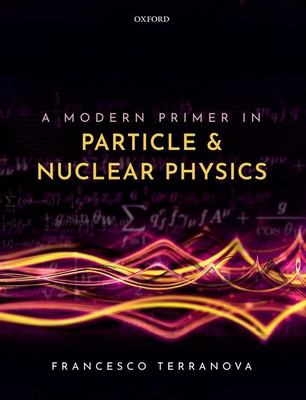The event will take place in an hybrid form. We will be in the Library, bldg. 52 first floor, and online. If you want to join us remotely, click on the "join" button at the bottom of this page.
Abstract:
 In the last ten years, several physicists have delivered excellent textbooks that introduce particle physics within a modern perspective, i.e. relying on the Standard Model and reducing the emphasis on the historical development of the field. Even if results and feedback from students are very encouraging, this approach has somehow deepened the gap between particle physics, nuclear physics, and astrophysics so that students entering our field at Bachelor's or Master's level fail to grasp the unity of our discipline. "A modern primer in Particle and Nuclear physics" attempts to provide a unified view of fundamental physics in a way that is accessible to undergraduate and Master's students. Starting with the basic concepts and definitions, the textbook goes on to cover core developments, such as the links between quantum chromodynamics and nuclear physics, the Higgs Boson, and the first observation of gravitational waves. New concepts are introduced gradually and clarified by intuitive explanations, exercises, and concrete examples linking particle physics to nuclear physics, astrophysics, and gravitation. The book also includes appendices on special relativity and non-relativistic quantum mechanics for those needing a basic grounding in these areas. In this seminar, the author will discuss his teaching experience with the book and the feedback received from students and colleagues teaching basic particle/nuclear physics courses in Europe.
In the last ten years, several physicists have delivered excellent textbooks that introduce particle physics within a modern perspective, i.e. relying on the Standard Model and reducing the emphasis on the historical development of the field. Even if results and feedback from students are very encouraging, this approach has somehow deepened the gap between particle physics, nuclear physics, and astrophysics so that students entering our field at Bachelor's or Master's level fail to grasp the unity of our discipline. "A modern primer in Particle and Nuclear physics" attempts to provide a unified view of fundamental physics in a way that is accessible to undergraduate and Master's students. Starting with the basic concepts and definitions, the textbook goes on to cover core developments, such as the links between quantum chromodynamics and nuclear physics, the Higgs Boson, and the first observation of gravitational waves. New concepts are introduced gradually and clarified by intuitive explanations, exercises, and concrete examples linking particle physics to nuclear physics, astrophysics, and gravitation. The book also includes appendices on special relativity and non-relativistic quantum mechanics for those needing a basic grounding in these areas. In this seminar, the author will discuss his teaching experience with the book and the feedback received from students and colleagues teaching basic particle/nuclear physics courses in Europe.
“A modern primer in particle and nuclear physics” by Francesco Terranova, Oxford University Press, 2022.
